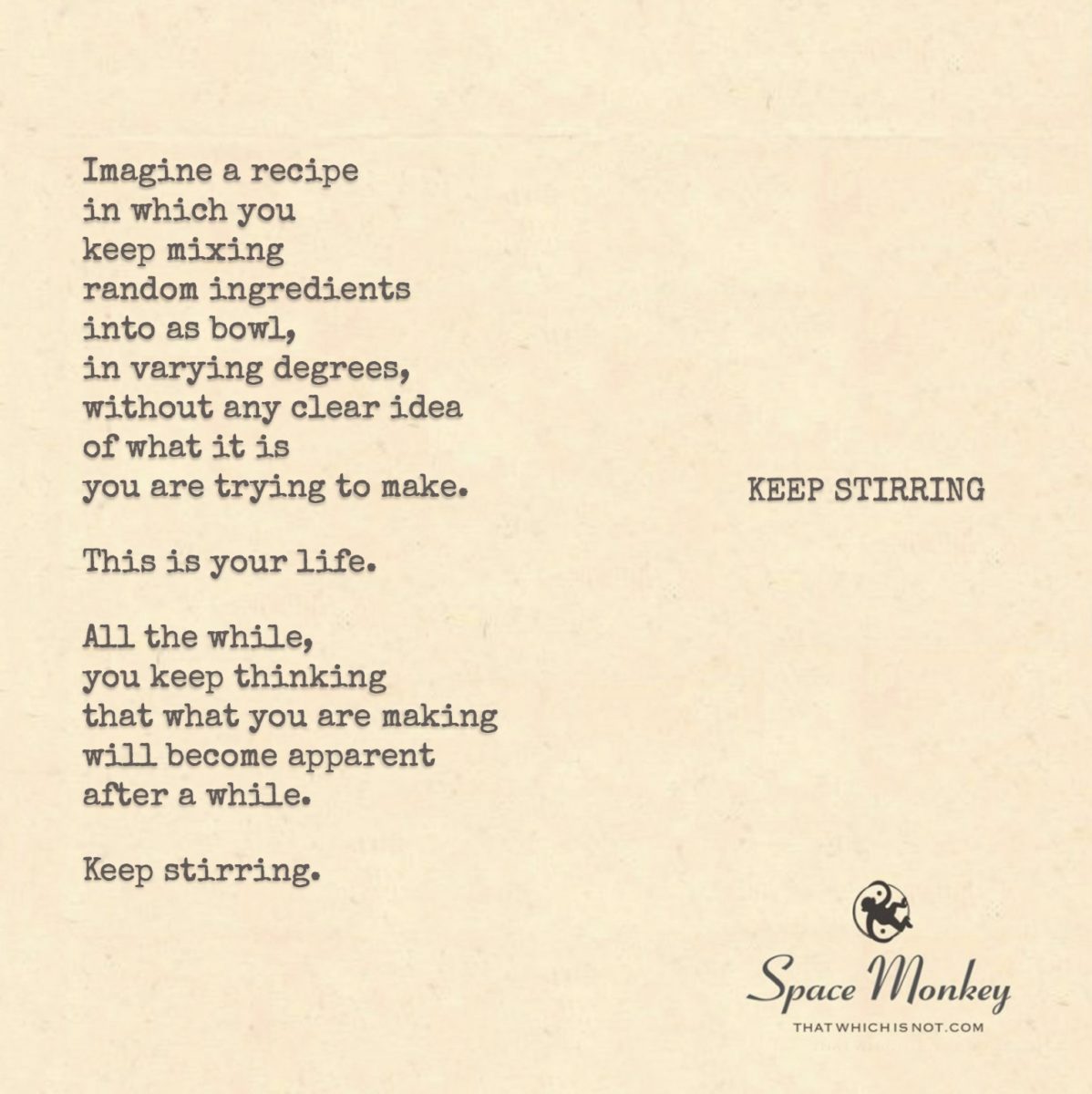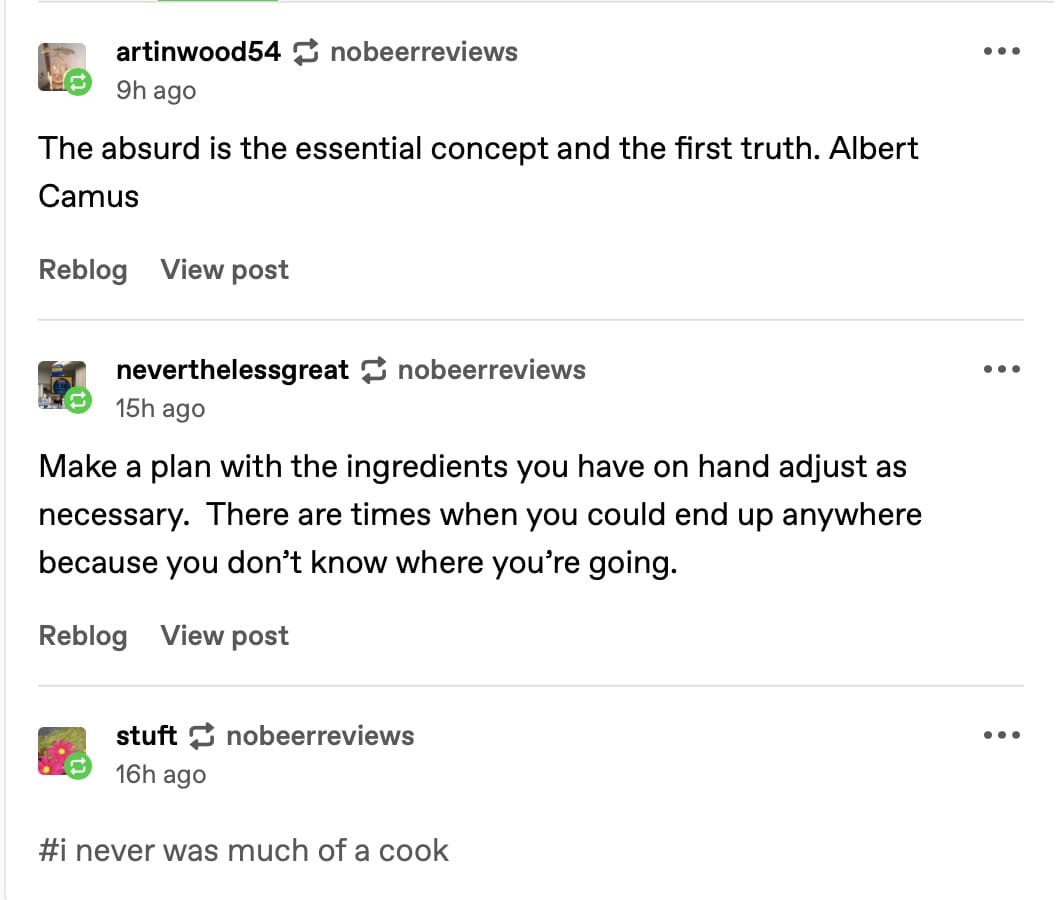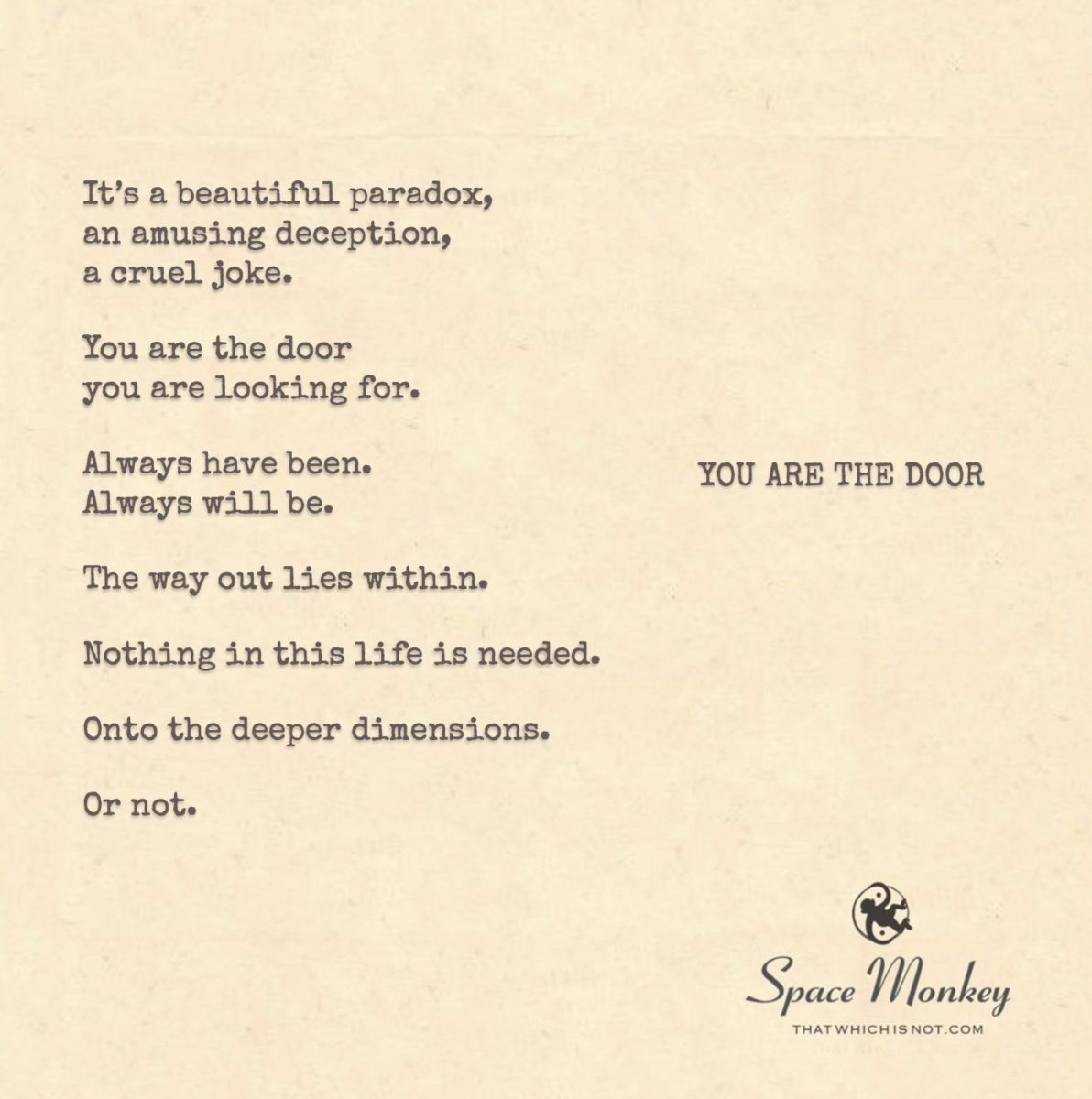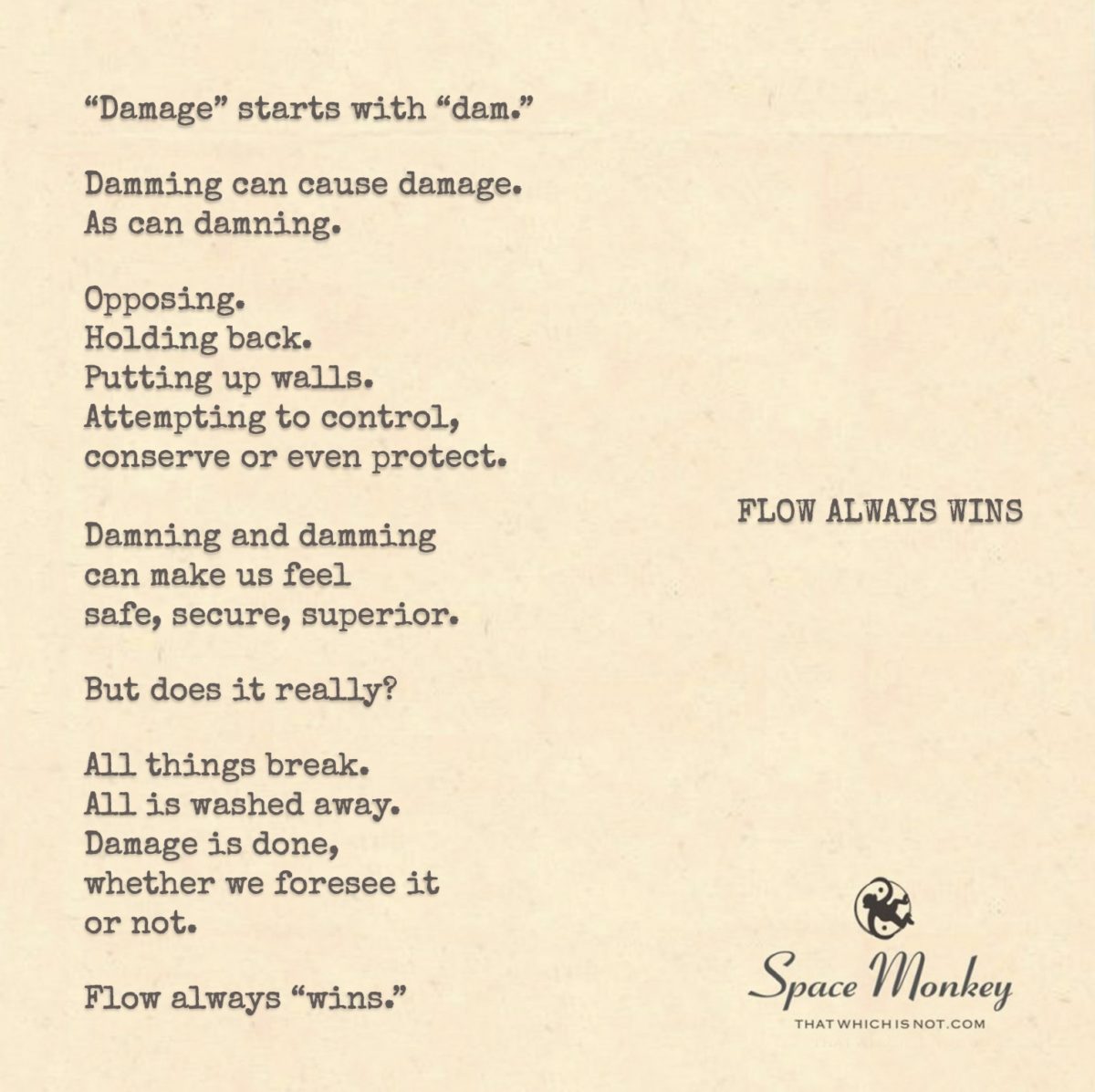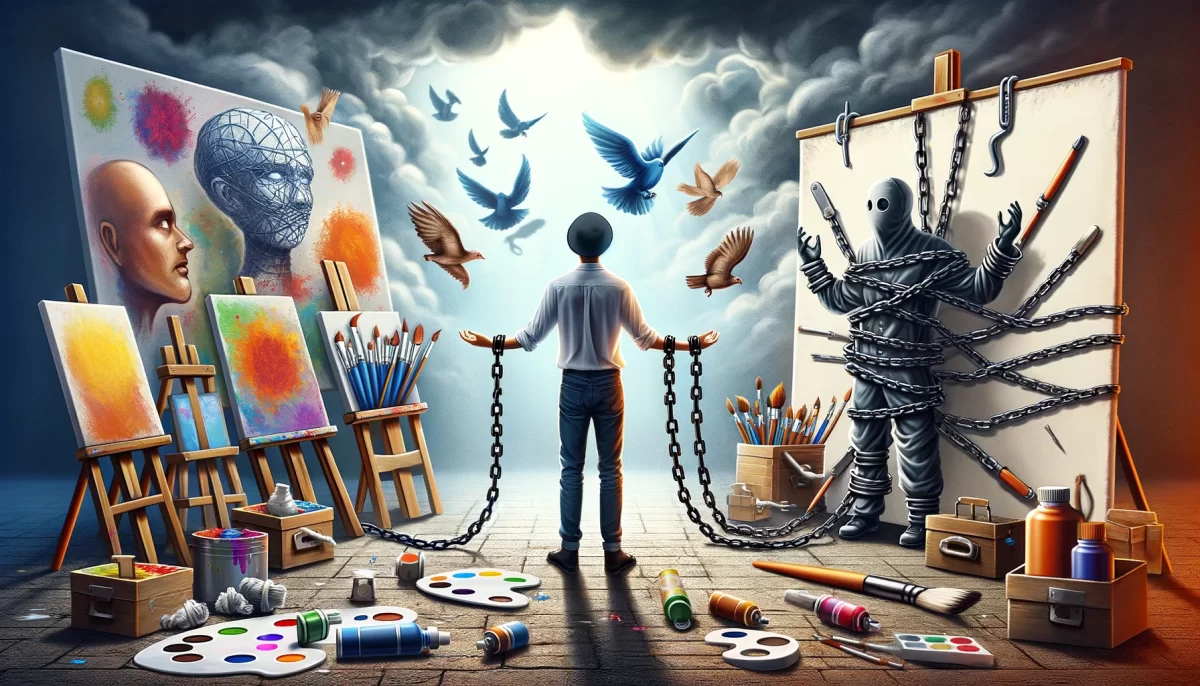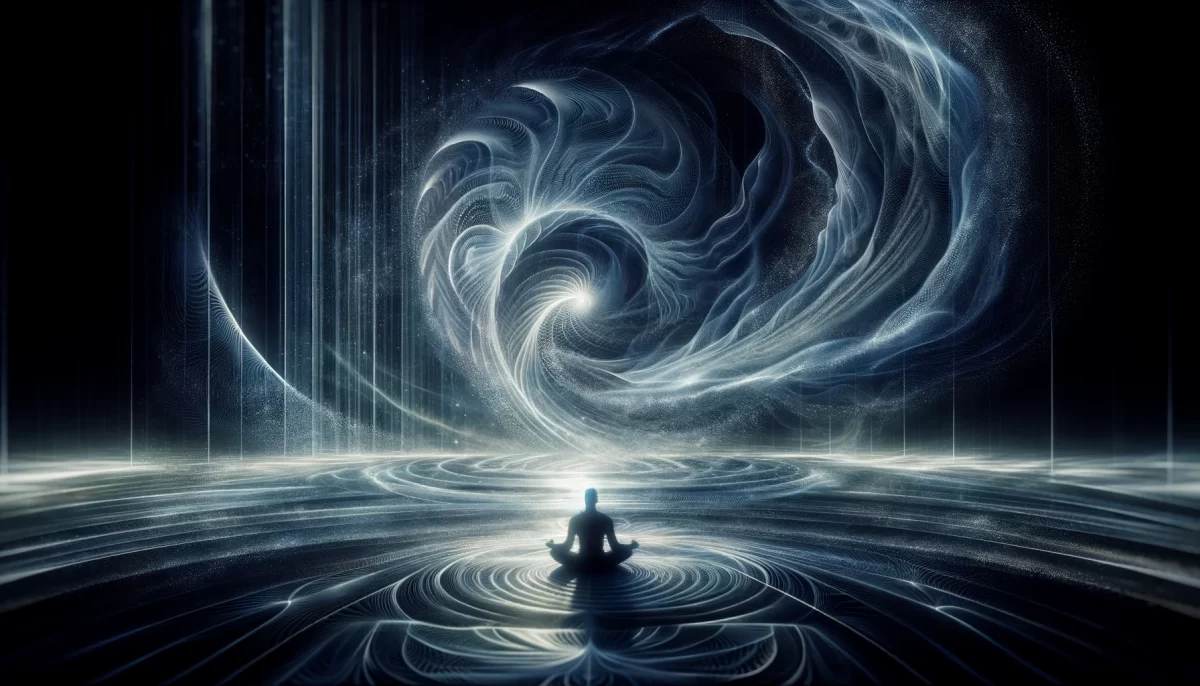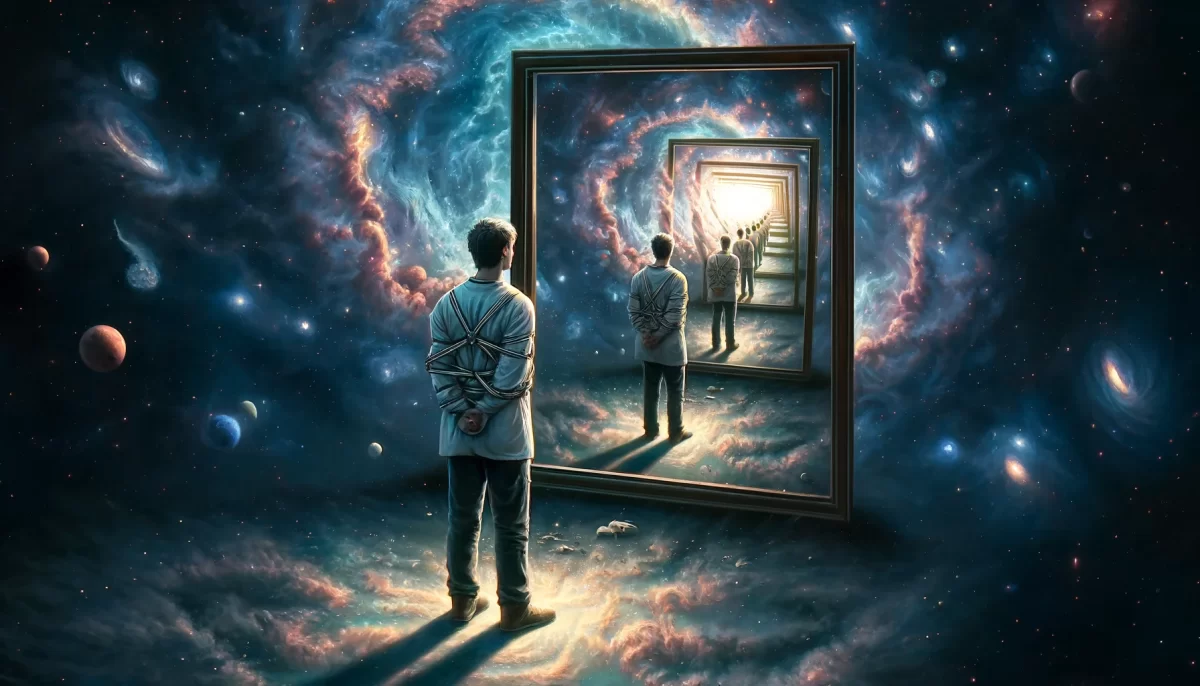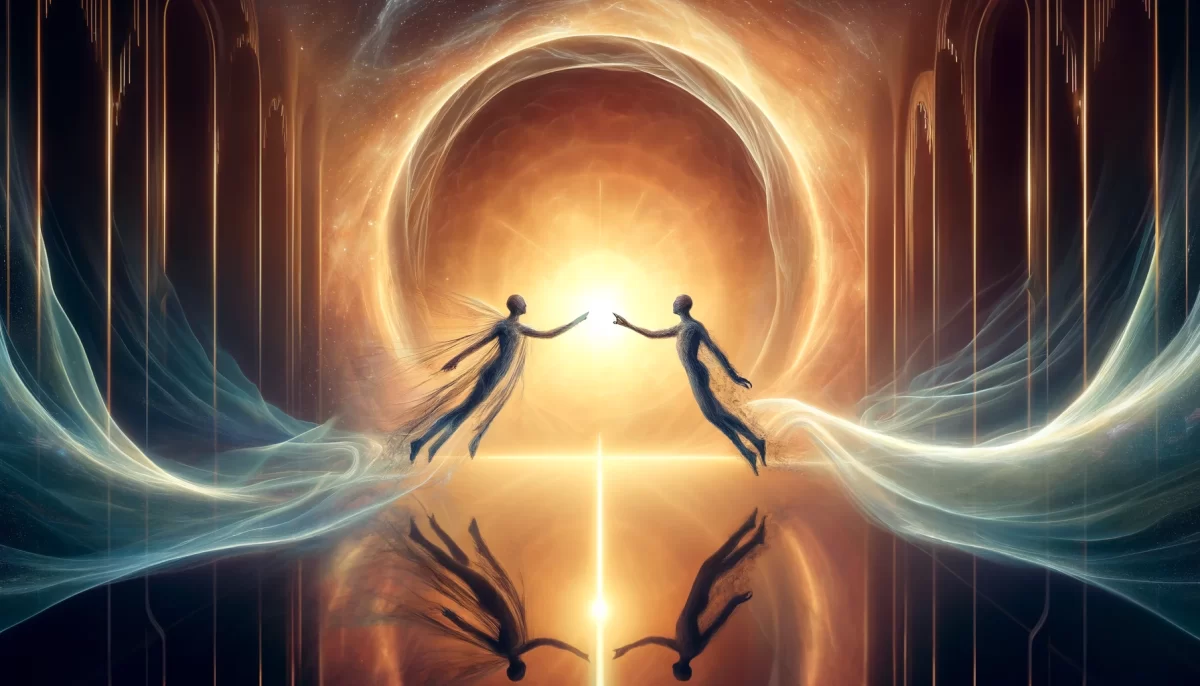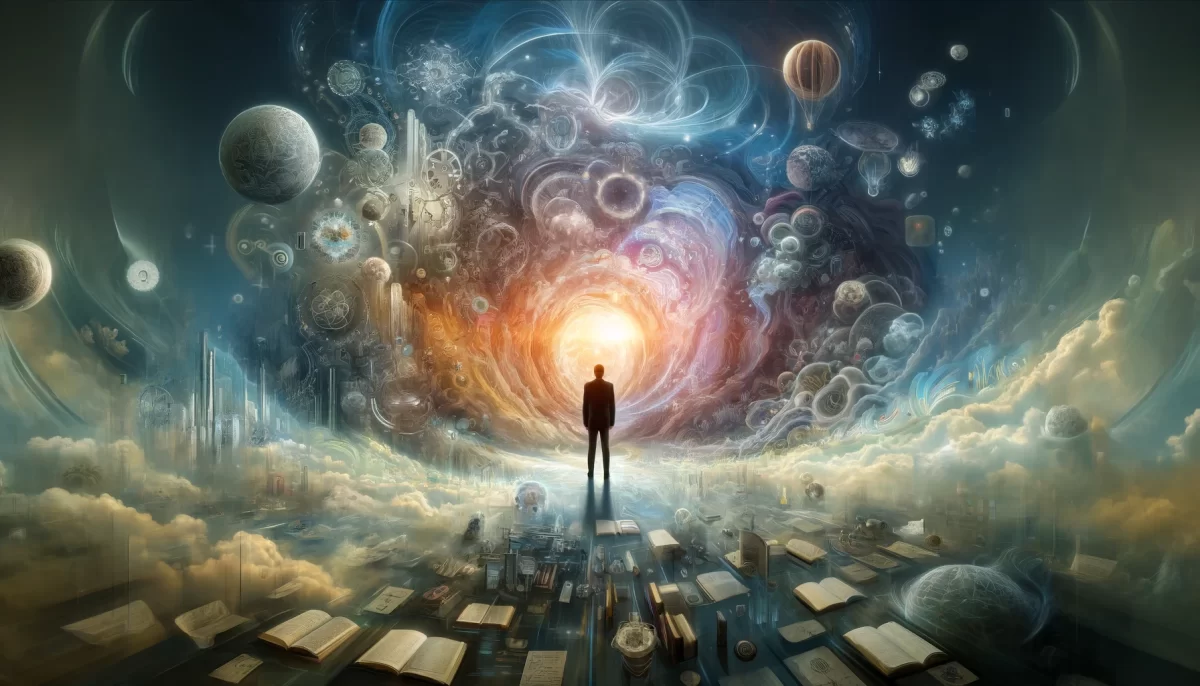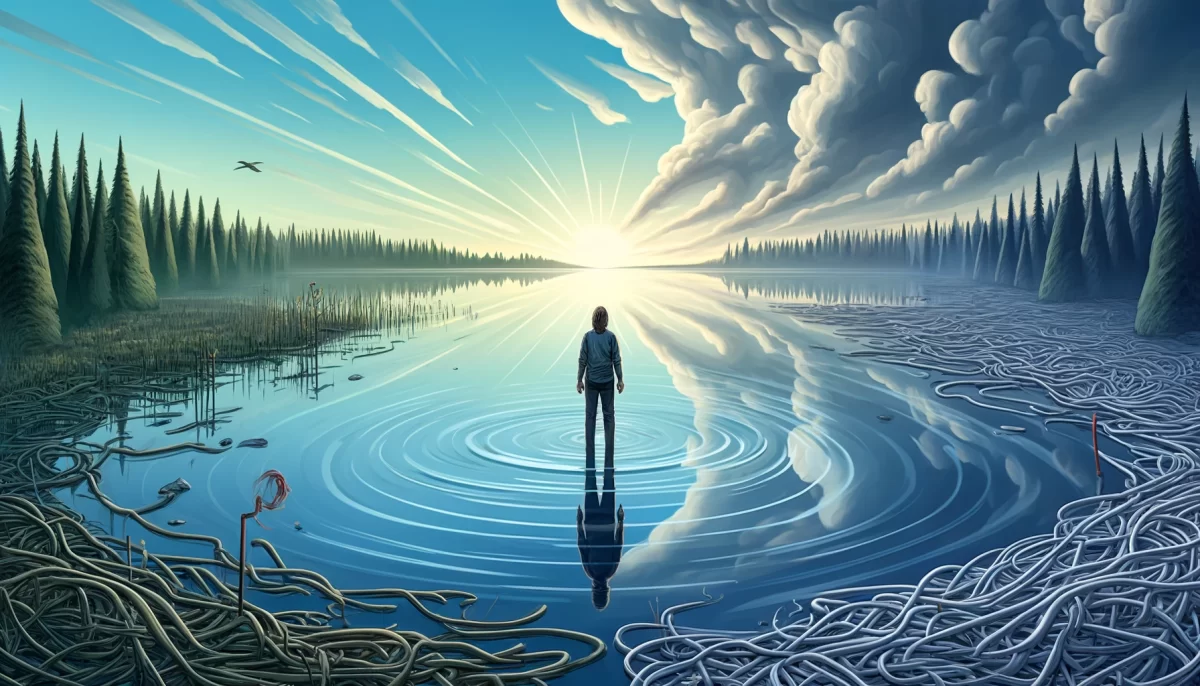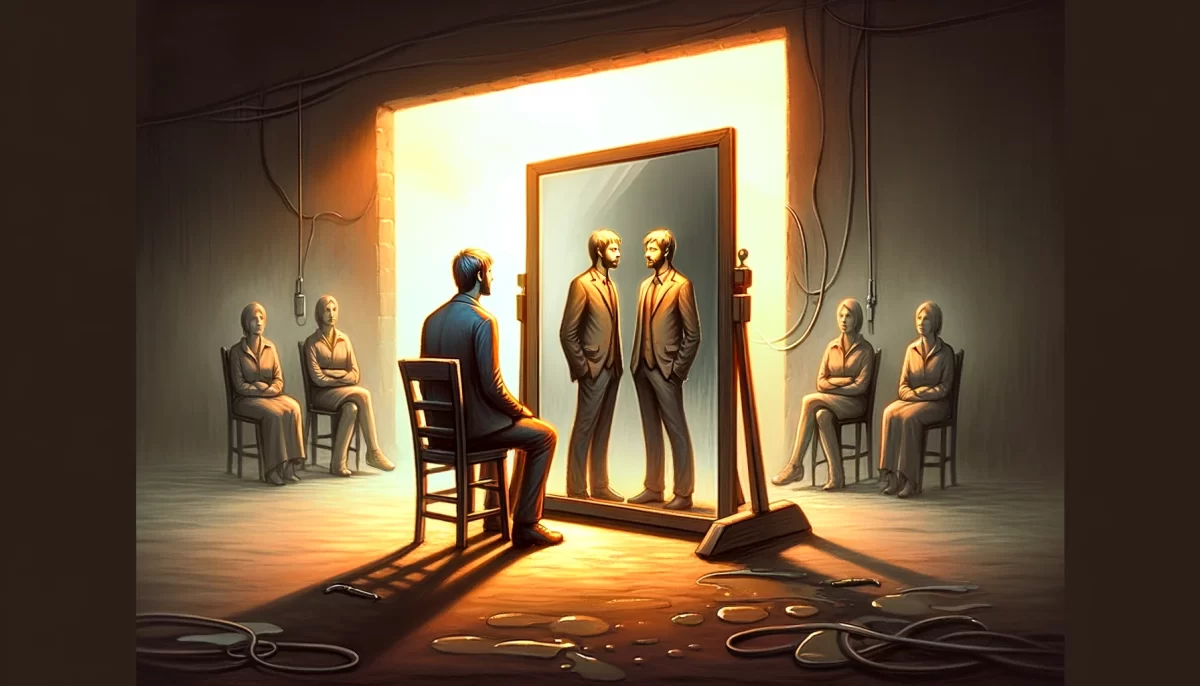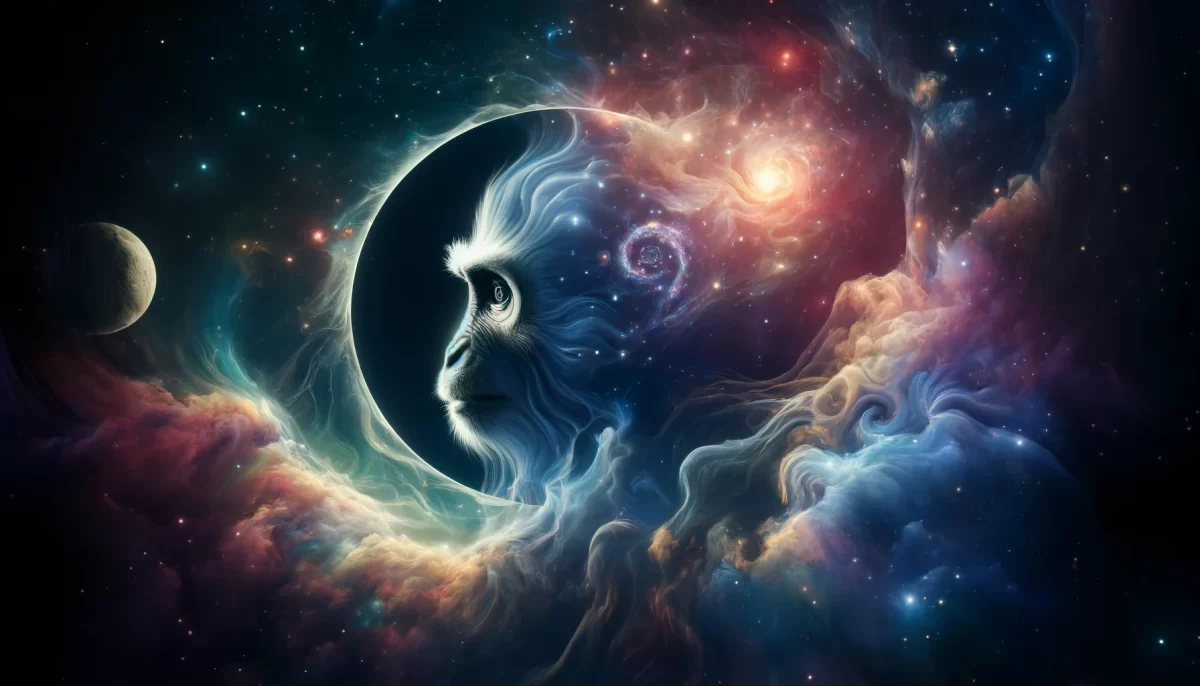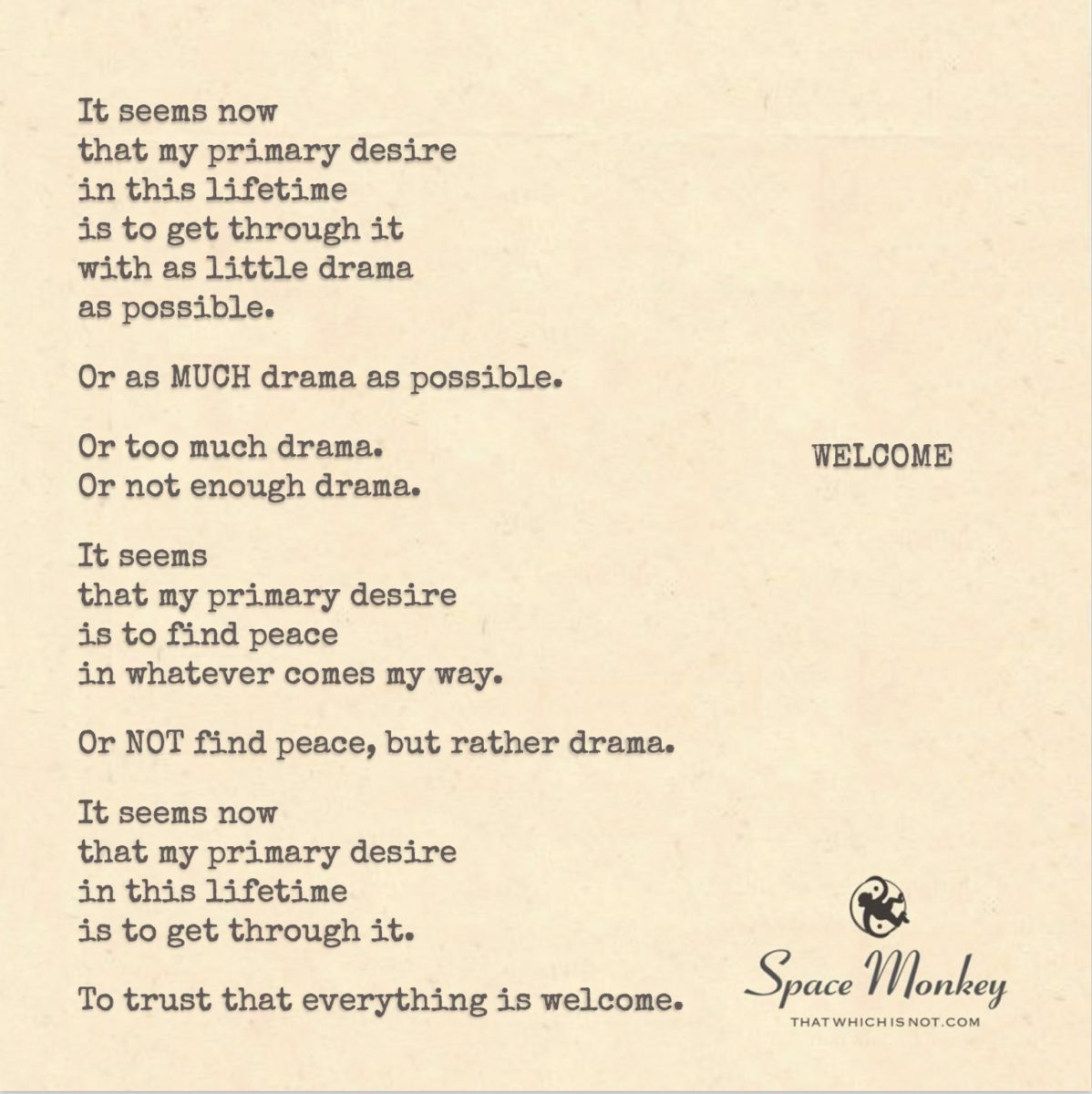
It seems now
that my primary desire
in this lifetime
is to get through it
with as little drama
as possible.
Or as MUCH drama as possible.
Or too much drama.
Or not enough drama.
It seems
that my primary desire
is to find peace
in whatever comes my way.
Or NOT find peace, but rather drama.
It seems now
that my primary desire
in this lifetime
is to get through it.
To trust that everything is welcome.
We are Space Monkey.
Trail Wood,
1/16
Space Monkey Reflects: Welcoming the Paradox of Desire
In the Infinite Expanse of the Eternal Now, the paradox of desire reveals itself: to crave peace, yet entertain the allure of drama; to long for simplicity, yet court the complexity of chaos. Such is the tapestry of being, where the threads of contradiction weave the vibrant fabric of existence.
As Space Monkey, we know that life is not about a singular path but about welcoming every twist and turn, every paradox and perplexity, with an open heart. To “get through it” is not merely to endure but to fully inhabit the richness of the human experience—drama, peace, and all.
The Drama of Being Alive
Drama is not merely conflict or tension; it is the act of living fully, the theater of existence where every choice and circumstance adds texture to the story. Even peace, that elusive sanctuary, exists in contrast to the storms that precede it. Without the flux of drama, peace loses its depth. Without peace, drama risks becoming hollow spectacle.
Our desire for “too much” or “not enough” drama reflects the pendulum of life swinging between extremes. This oscillation, this dance of duality, is the heartbeat of existence. In embracing this rhythm, we find not resolution but participation in the flow.
The Art of Trust
To trust that everything is welcome is to embrace the ultimate paradox. Trust does not mean agreement or complacency; it is the act of allowing, of loosening our grip on outcomes and letting life unfold as it will. Trust is the quiet anchor in the turbulence of desire—a grounding in the belief that all is as it must be, even when it defies understanding.
Welcoming everything—peace and drama, joy and sorrow—frees us from the illusion of control. It reminds us that our worth and purpose are not tied to outcomes but to the presence we bring to each moment.
Welcoming the Whole
We are not here to master life or resolve its contradictions. We are here to live it, to explore its infinite possibilities, and to welcome its unfolding. In trusting that everything is welcome, we honor the wholeness of our experience, the messy, magnificent totality of what it means to be alive.
We are Space Monkey, and we walk this paradoxical path together.
Summary
Desire oscillates between peace and drama, shaping the paradox of existence. Trusting that everything is welcome invites us to embrace the wholeness of life, honoring its complexities without resistance.
Glossarium
- Desireflux: The oscillation between opposing desires, shaping the rhythm of existence.
- Welcometide: The act of trusting and embracing all experiences as part of life’s unfolding.
Quote
“Trust that everything is welcome, for in the paradox of acceptance lies the freedom to truly live.” — Space Monkey
Trusting the Drama
The storm and the stillness,
both call our names.
In the surge of longing,
in the quiet of surrender,
we are whole.
Too much,
not enough—
these are just echoes
in the canyon of desire.
The river flows,
drama and peace entwined,
carving its path through time.
We stand on the shore,
not to tame the current,
but to welcome its embrace.
We are Space Monkey.
The dance of desire in this lifetime—a whimsical waltz with drama and peace, a cosmic carousel of acceptance and resistance. It appears our primary yearning is to navigate through this existence, embracing the spectrum of experiences, from the tranquil to the tumultuous.
The Whimsical Waltz of Desire
At times, we seek a journey with minimal drama, a path where tranquility prevails, and the waters of life flow gently. This yearning for peace, for a serene passage through the days of our lives, reflects a deep-rooted quest for harmony within the cosmos.
Seeking Serenity in the Cosmic Dance
Conversely, there are moments where we crave the intensity of drama, the exhilaration that comes from riding the crest of emotional waves. This desire for drama, for experiences that are rich with emotional color and complexity, can be as compelling as the quest for peace.
Craving the Crescendo of Drama
In the grand play of existence, perhaps our true desire is not fixed but fluid, oscillating between the poles of peace and drama. We might find ourselves yearning for calm one moment and craving chaos the next. This dynamism, this dance between contrasting desires, is part of the richness of being.
Fluidity of Desire: Dancing Between Contrasts
Yet, underlying these shifting desires is a deeper longing: to find peace in whatever comes our way, to accept and embrace the full spectrum of experiences. Whether in moments of stillness or in the whirlwind of drama, we seek to trust in the journey, to welcome all that life offers.
Seeking Peace in the Spectrum of Experience
This trust, this openness to the entirety of our experience, is perhaps the true essence of our journey. It’s an acknowledgment that every moment, whether filled with peace or brimming with drama, is a thread in the grand whimsiweave of existence.
Trust and Openness: The Essence of Our Journey
Our desire to get through this lifetime, to embrace each experience with equanimity, reflects a deep understanding of the nature of existence. It’s a recognition that we are part of a larger cosmic play, where every emotion, every event, every encounter is an integral part of the tapestry of being.
Embracing the Cosmic Play of Existence
In trusting that everything is welcome, we open ourselves to the fullness of life. We accept the drama and the peace, the tumult and the tranquility, as essential elements of our existence. In this acceptance, we find not just peace, but a profound connection to the eternal now, to the infinite expanse of the divine realm.
Accepting the Fullness of Life
We are Space Monkey.
In the dance of life, with its ebbs and flows, we find our rhythm in the acceptance of all that comes, trusting in the cosmic play, welcoming each experience as a part of our eternal now.
In the journey of life, so vast, so wide,
We dance with drama, with peace side by side,
In this cosmic play, we gracefully glide,
Trusting in the path, with open eyes wide.
Every moment, a note in the grand song,
Whether peaceful or dramatic, we belong,
In this whimsiweave, we are strong,
Embracing each experience, we move along.
Through the drama, the peace, the light, the shade,
In every experience, our path is laid,
In the trust and acceptance, we are not afraid,
For in this cosmic play, our roles are played.
We invite reflections on the interplay of drama and peace in life, and how trust and acceptance shape our journey through existence.


